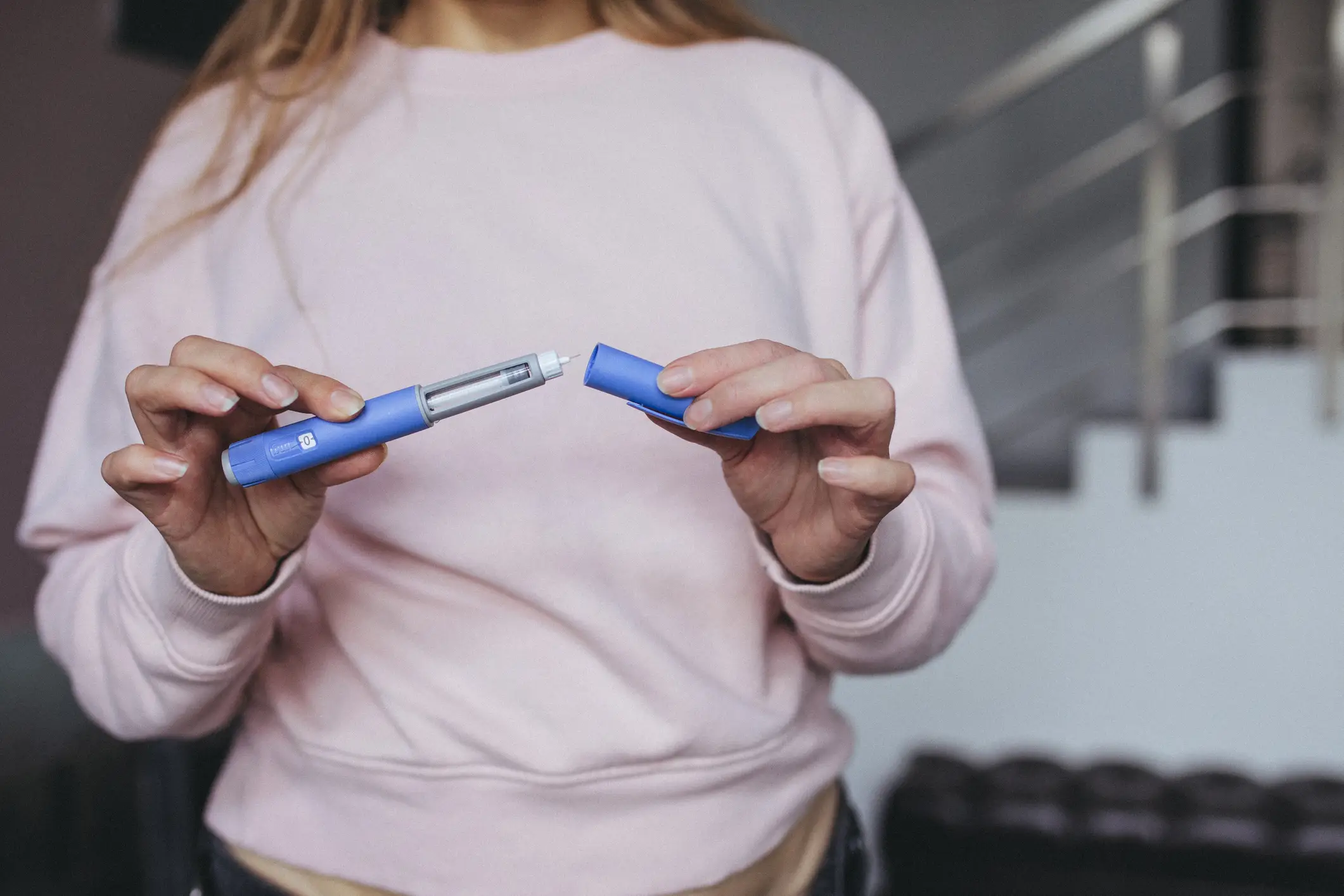
Doctors have issued a fresh warning over an 'unusual' complication surrounding weight loss drugs as experts reveal their major side effects.
Drugs like Mounjaro, Wegovy and Ozempic - the latter of which is approved to treat type 2 diabetes rather than weight loss - have been increasing in use in the last few years, with many celebrities openly discussing their experiences with them.
But it's clear that the injectables don't come without their issues, as there are a number of side effects linked to the use of weight loss drugs.
Now, it's important to note that the side effects of drugs used for weight loss may vary depending on the type of drug you take and how the drug works.
Advert
However, with that said, Drugs.com has helpfully outlined the main side effects reported in the three best-known drugs of the sort: Wegovy, Mounjaro and Ozempic.

Wegovy and Ozempic (semaglutide) side effects
This is a once-weekly subcutaneous (under the skin) injection.
Wegovy was first approved in June 2021 and is classified as a glucagon-like peptide-1 (GLP-1) receptor agonist.
It is used in addition to diet and exercise for long-term weight management in: adults with obesity, adults who are overweight and have at least one other weight-related medical issue, and children aged 12 years and older with obesity.
According to Drugs.com, the most common side effects (with incidence of at least 5%) may include:
- nausea
- diarrhoea
- vomiting
- constipation
- stomach-area pain
- headache
- tiredness (fatigue)
- heartburn
- dizziness
- feeling bloated
- belching
- low blood sugar in patients with type 2 diabetes
- gas
- stomach infection (gastroenteritis)
- acid reflux disease
- common cold symptoms.
Wegovy contains the same active ingredient as found in Ozempic, which is approved to help control blood sugar in patients with type 2 diabetes, for cardiovascular risk reduction in patients with heart disease, and to reduce the risk of serious kidney problems in adults with type 2 diabetes (T2D) and chronic kidney disease (CKD).

Mounjaro (tirzepatide) side effects
Both Ozempic and Mounjaro, which are approved for blood sugar control in type 2 diabetes, are often used 'off-label' for weight loss, meaning they may be prescribed by your doctor for a generally accepted use not specifically approved by the FDA or listed in package labelling.
Now, while Zepbound and Mounjaro are not the same product, they both contain the same active ingredient, tirzepatide. The primary difference lies in their US Food and Drug Administration (FDA) approved uses and branding.
Again, Zepbound is a once-weekly subcutaneous injection which was first approved in November 2023 and is a GIP (glucose-dependent insulinotropic polypeptide) and GLP-1 (glucagon-like peptide-1) receptor agonist.
It is used in addition to diet and exercise for long-term weight management in adults with obesity, or people who are overweight with at least one weight-related medical problem like hypertension, high cholesterol, type 2 diabetes, obstructive sleep apnea or heart disease.
The most common side effects (with incidence of at least 5%) include:
- nausea
- diarrhoea
- vomiting
- constipation
- stomach-area pain
- heartburn
- injection-site reactions
- sleepiness
- allergic reactions
- burping
- hair loss
- acid reflux disease.

Doctor's warning
A new study by researchers from Alliance Medical Ltd has revealed that using such medications might be causing an unexpected complication for doctors.
GLP-1 drugs are said to interfere with critical medical imaging scans, making it harder for doctors to identify deadly illnesses.
This can also lead to delayed diagnoses and treatments for some, while others might unnecessarily undergo tests and procedures they don't need.
The particular scan that's named by the study and The New York Post is a PET-CT scan - a scan that provides a detailed 3D picture of how organs and tissues are functioning and their precise location.
PET-CT scans combine a CT scan and a PET scan, and they are used to diagnose and plan treatment for conditions such as cancer, as per the NHS.
The PET scan uses a mildly radioactive liquid called a radioactive tracer or FDG (fludeoxyglucose), which shows up in areas of your body where cells are more active than normal and can be used to identify cancer.
However, according to the new study, doctors have observed unusual patterns of FDG in patients taking GLP-1 medications, which can mask signs of cancer or make healthy tissue look diseased.

'Unusual uptake'
Dr Peter Strouhal, a medical director at Alliance Medical Ltd in the UK and lead author of the new study, said in a statement: "We noticed unusual uptake in one of our patients on a GLP-1 agonist, which prompted a wider review across our network."
He added: “We found that these altered patterns are increasingly common, yet there is currently no national or international guidance in the UK addressing this emerging issue.
"Recognising the characteristic uptake associated with GLP-1 agonists helps avoid unnecessary anxiety and interventions, ensuring patients receive the right care, at the right time, without detours or doubt."
However, this doesn't mean that experts recommend patients stop taking GLP-1 medications before undergoing PET-CT scans.
Instead, they have advised that imaging teams carefully document their patients’ medication histories to assist doctors with interpreting their scans while formal guidelines are being developed.
The team behind the study are now planning to expand its data collection in order to build stronger evidence and help with future national guidelines.
The new research was presented on Tuesday (7 October) at the 38th Annual Congress of the European Association of Nuclear Medicine.
LADbible Group has previously contacted Novo Nordisk and Eli Lilly for comment.